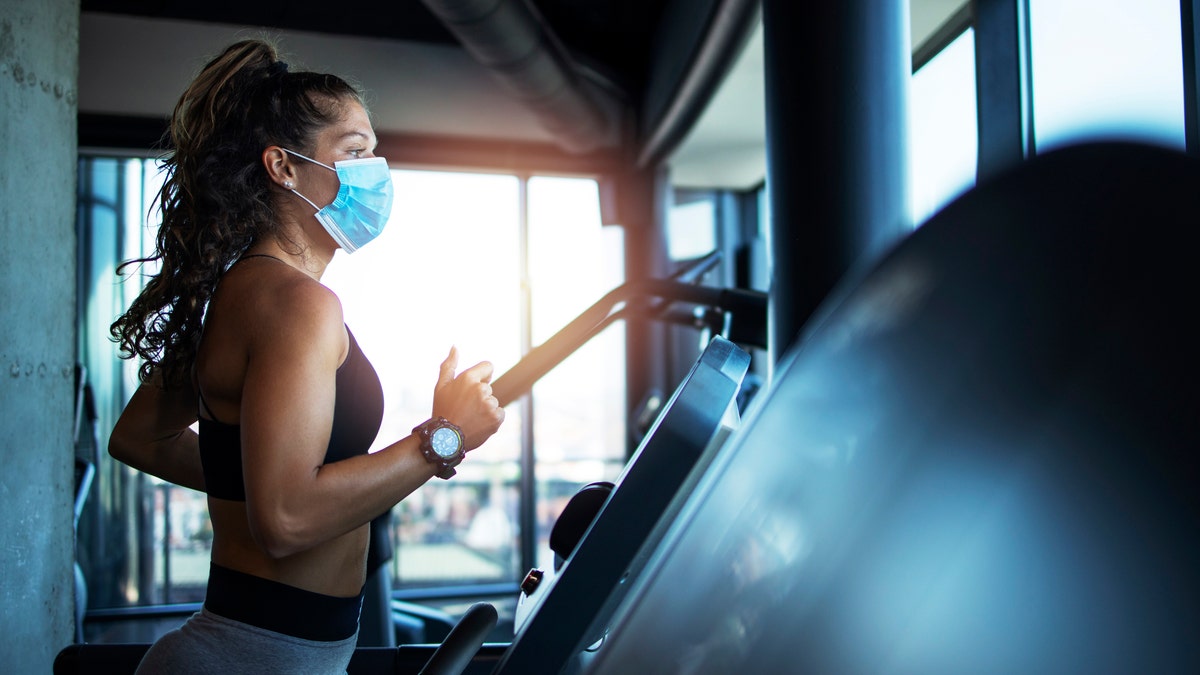Coronavirus pandemic: When will normal life return?
Fox News medical contributor Dr. Marc Siegel answers parents’ questions on whether it’s safe to return to in-person learning amid the coronavirus pandemic.
Early research suggests that face masks used to prevent the spread of the novel coronavirus are safe to use even during intense exercise, and could help to curb the spread of COVID-19 at indoor gyms.
In a paper published this week in the European Respiratory Journal, researchers with the Monzino Cardiology Centre (CCM) in Milan and the University of Milan studied the breathing rate, heart rate, blood pressure and oxygen levels of 12 healthy people, six women and six men, as they rode exercise bikes. They studied these levels in three rounds, while the participants did not wear a mask, while they wore a surgical mask, and while they wore an FFP2 mask, which is similar to the N95.

Early research suggests that face masks used to prevent the spread of the novel coronavirus are safe to use even during intense exercise, and could help to curb the spread of COVID-19 at indoor gyms. (iStock)
By the end, they concluded that a face mask reduced the participants’ ability to perform intense exercise by about 10%, with the researchers suggesting this decrease was likely because it was a bit harder to breathe through a mask, namely the thick FFP2.
IS IT SAFE TO WEAR A CORONAVIRUS FACE MASK WHILE EXERCISING?
"Protection masks are associated with significant but modest worsening of spirometry and cardiorespiratory parameters at rest and peak exercise. The effect is driven by a ventilation reduction due to an increased airflow resistance," the researchers concluded.
"However," they noted, "since exercise ventilatory limitation is far from being reached, their use is safe even during maximal exercise, with a slight reduction in performance."
CLICK HERE FOR FULL CORONAVIRUS COVERAGE
One expert who previously spoke to Fox News about working out while wearing a face mask said that doing so is "generally safe," but noted that those with underlying respiratory issues, such as asthma or COPD, or certain cardiovascular issues should likely avoid working out in a face mask.
The researchers in the study published this week in the European Respiratory Journal also noted that more study is needed on this topic with people who suffer from lung or heart conditions.








































